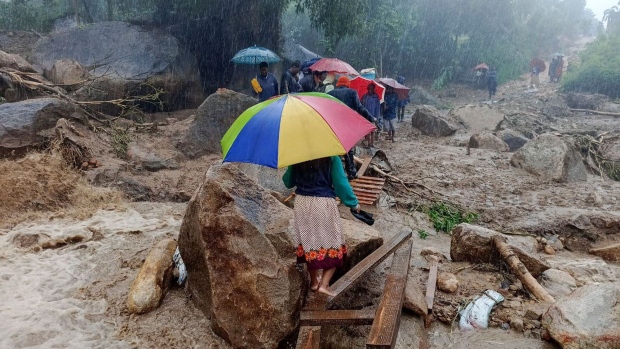Mar 14, 2023
Cholera Risk in Malawi Climbs as Cyclone Wreaks Further Damage
, Bloomberg News

(Bloomberg) -- Malawi, already having battled its worst-ever cholera outbreak this year, faces renewed risk of the water-borne diarrheal disease after heavy rains from a tropical cyclone damaged power supplies and other infrastructure.
Cyclone Freddy hit the southern African nation for a second time in a month, after bringing downpours and havoc to other African nations including Madagascar and Mozambique.
“The situation is very dire” said Guilherme Botelho, Medecins Sans Frontieres emergency project coordinator in Blantyre, Malawi’s center of finance and commerce. “There are many casualties — either wounded, missing, or dead — and the numbers will only increase in the coming days.”
The Blantyre district has recorded the highest number of deaths, with the Queen Elizabeth Central Hospital reporting 220 people having died. That included 42 adults and 43 children who were pronounced dead on arrival, MSF, or Doctors Without Borders, said in a statement on Tuesday.
Cholera spreads rapidly through contaminated water and efforts to contain the disease have also been hampered by a global lack of vaccines. Africa was facing an exponential rise in cases, with infections in the single month of January at a third of the level reached in the whole of 2022, according to the World Health Organization.
President Lazarus Chakwera declared a state of disaster in Malawi’s southern region, helping the government to accelerate its response to the storm. The country remains the most cholera-affected nation in Africa.
In neighboring Mozambique, cholera infections are also rising. The health ministry reported 126 new cases on Tuesday, bringing the total to 8,698 and 54 deaths. These are concentrated around the central region that’s been most affected by the storm.
Freddy, which appears to have become the longest-lasting tropical cyclone ever, was first named on Feb. 6.
--With assistance from Matthew Hill.
(Updates with Mozambique cholera cases in seventh paragraph)
©2023 Bloomberg L.P.


